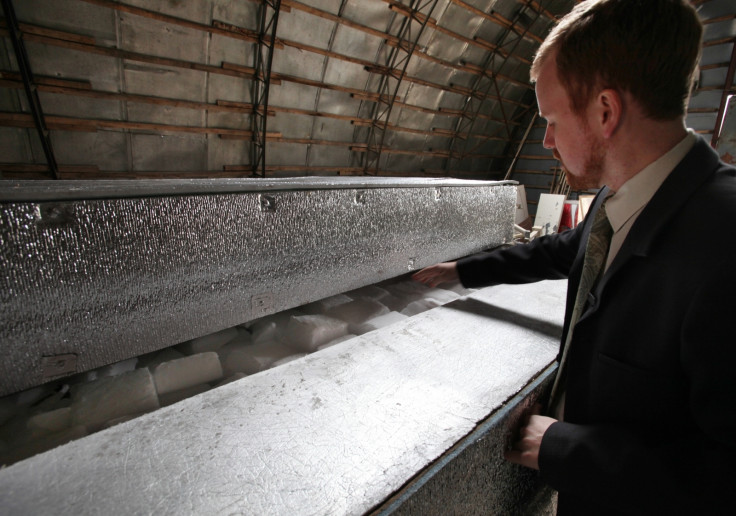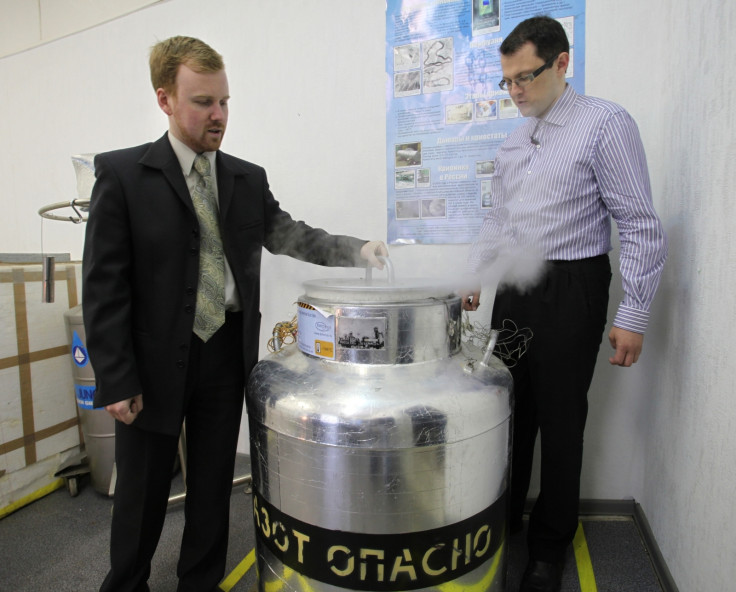Cryogenic scientists exploit euthanasia legal loophole to freeze people before they die
KEY POINTS
- Today, cryonic scientists have to wait for a person to be legally dead before they freeze them.
- KrioRus, a Russian firm believe they have found a legal loophole to freeze living customers.
- They plan to open a centre in Switzerland, where euthanasia is legal.
A Russian cryogenics firm believes it has found a legal loophole to freeze people before they die – thereby making it easier to bring them back to life in the future.
At the moment, cryonic scientists have to wait for a person to be legally dead before they freeze the corpse because freezing someone before they die is tantamount to murder.
But KrioRus, the only company providing cryonic services outside the US, have announced plans to open a centre in Switzerland, where euthanasia is legal, allowing to freeze, or 'kill', the person with their consent.
The firm hopes that this unprecedented step will mean their clients are preserved before the onset of brain damage and organ failure brought about by death.
KrioRus's chief scientist Igor Artyukhov said he already has 54 complete human bodies or heads resting in tanks of liquid nitrogen at temperatures of -196C, stored in the warehouse in Sergiev Posad.
As well as Russian natives, KrioRus's clients include an Italian, an Israeli and a Japanese man, all of whom were frozen shortly after they died.
They belong to a select club: less than 400 people have been cryonically frozen since 1964, despite tens of millions dying every year.
Experts then drain their blood and replace it with an anti freeze fluid to stop harmful ice crystals forming in their bodies, which are then frozen to the critically low temperature that prevents deterioration.
"From the biophysical point of view, time has stopped for them. No chemical processes are going on. They could last for 2,000 years." Artyukhov told The Telegraph (paywall).
"Cryonics is a plan B for those who want to live forever and reach times when we can do whatever we want with ourselves," he added.


However, there is one small catch: no one yet knows how to bring the frozen specimens back to life. In fact, many scientists are sceptical about it being in any way possible.
When a person dies, they quickly suffer severe brain damage, which is why today it is imperative that cryonic scientists rush them into the freezing tanks as soon as possible.
But the possibility of freezing someone before they die – via the legal loophole of Switzerland's euthanasia laws – creates a potential to avoid this damage. But the overriding question of then reinvigorating their bodies with life still remains.
KrioRus charge $36,000 (£27,000) to freeze an entire person's body and $12,000 to freeze just the head. On 9 November it started fundraising to buy a former military bunker in Switzerland where its directors hope to take their experimental science to the next level.






















